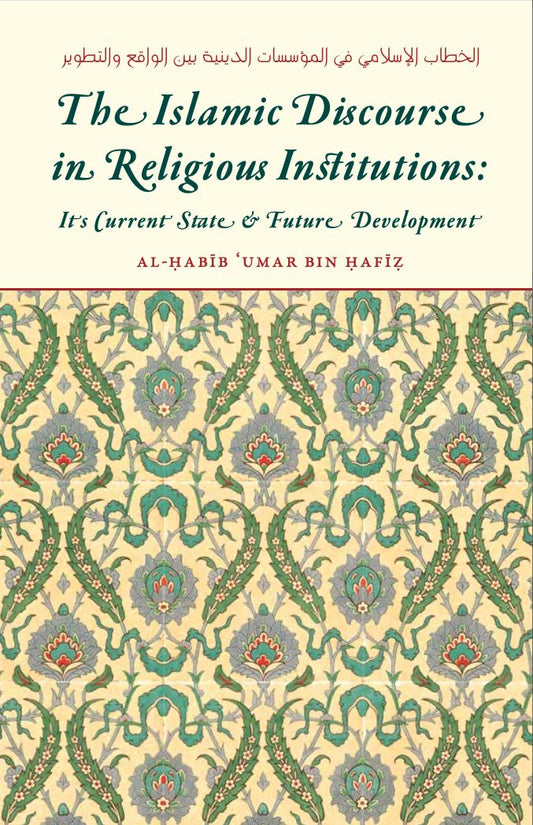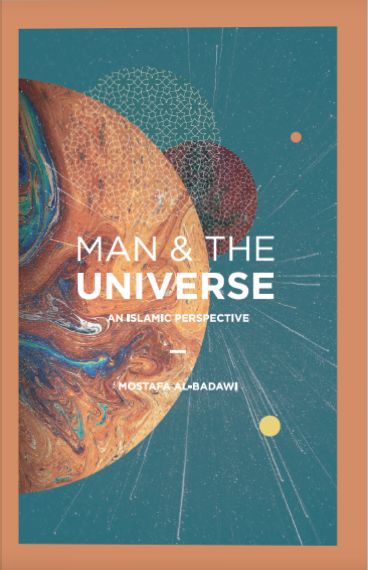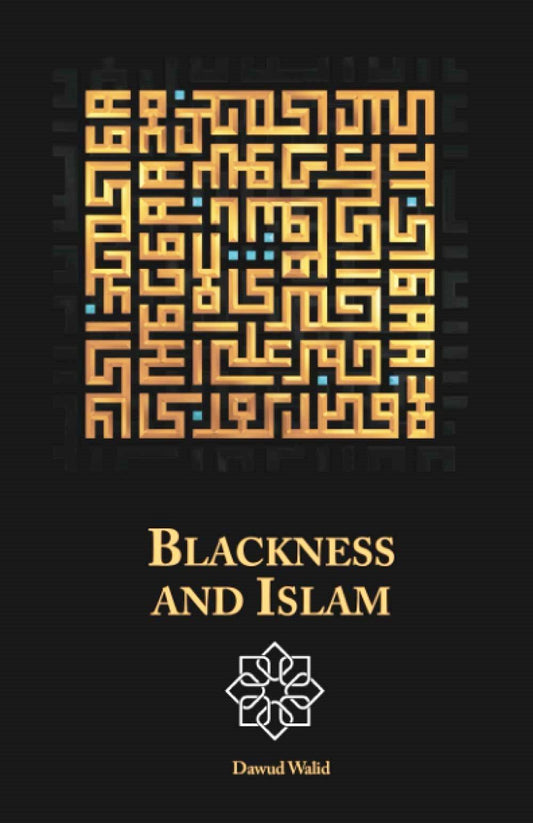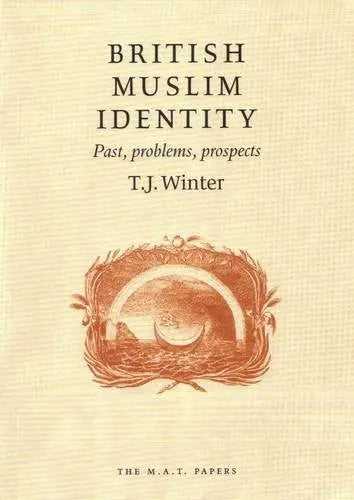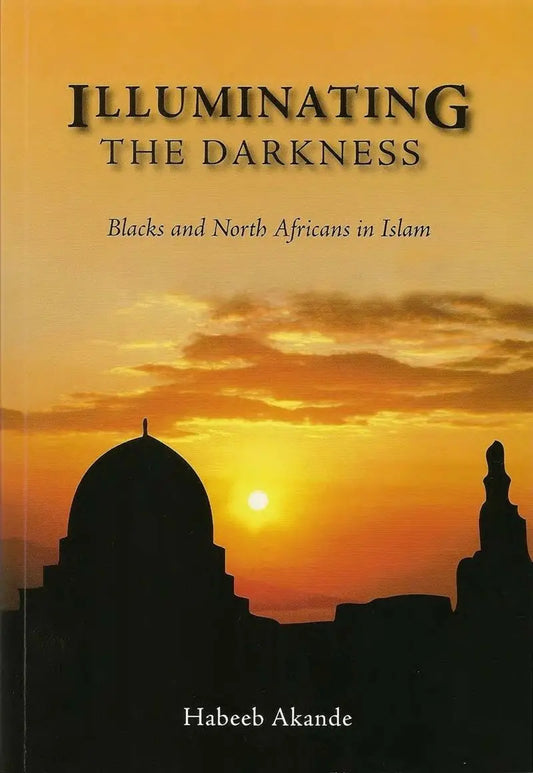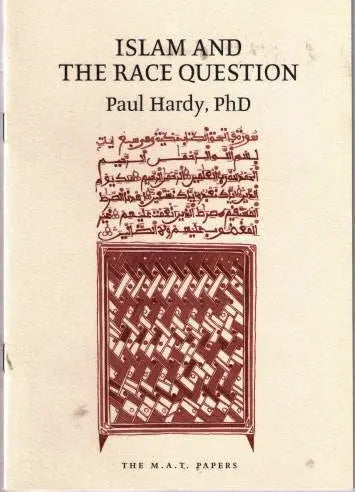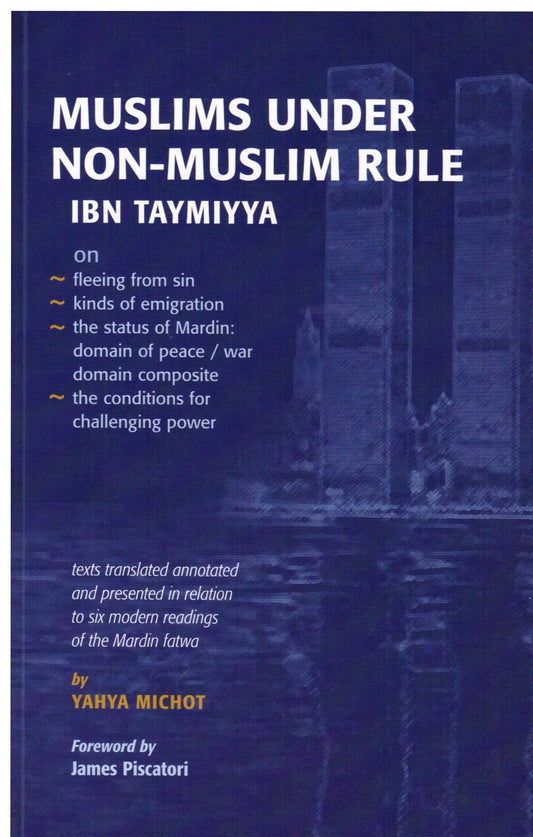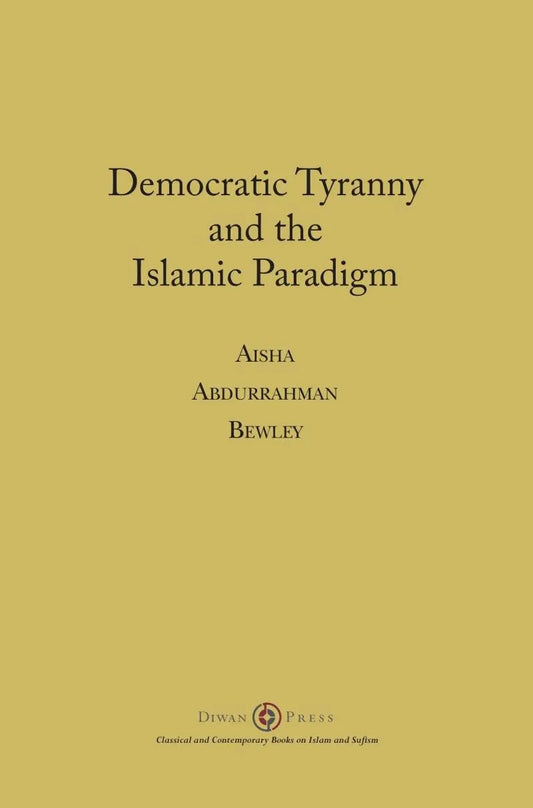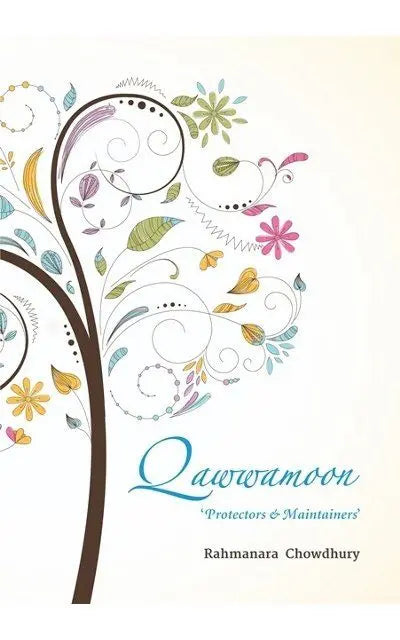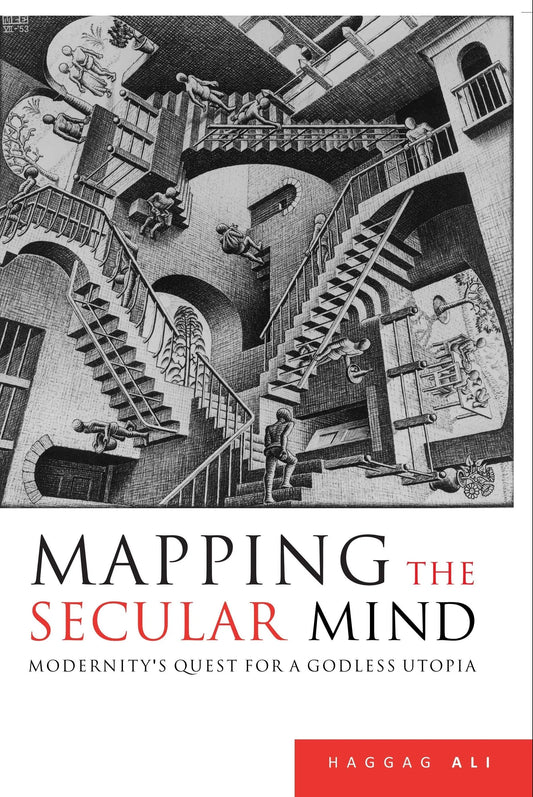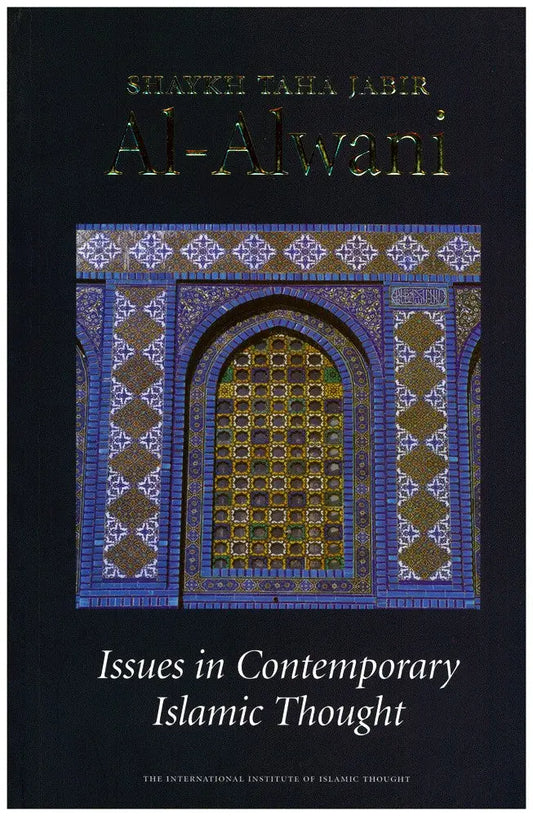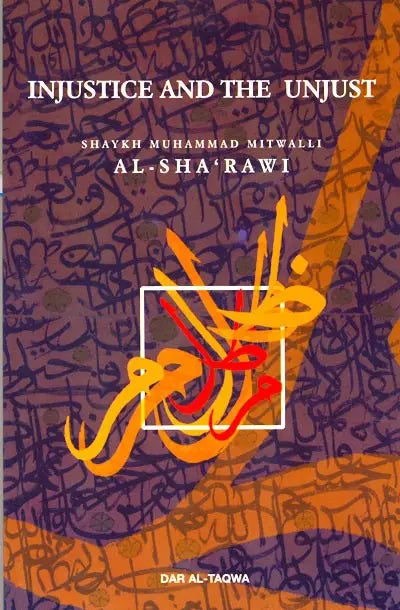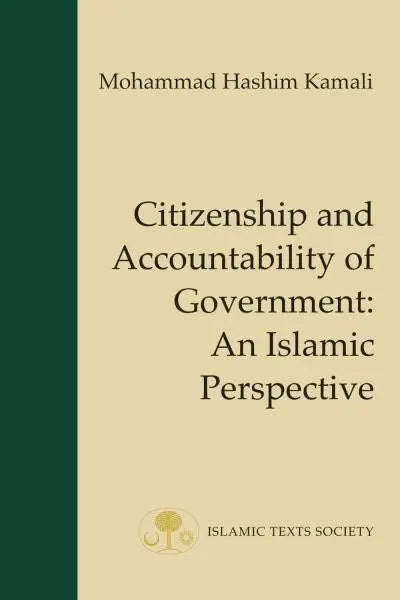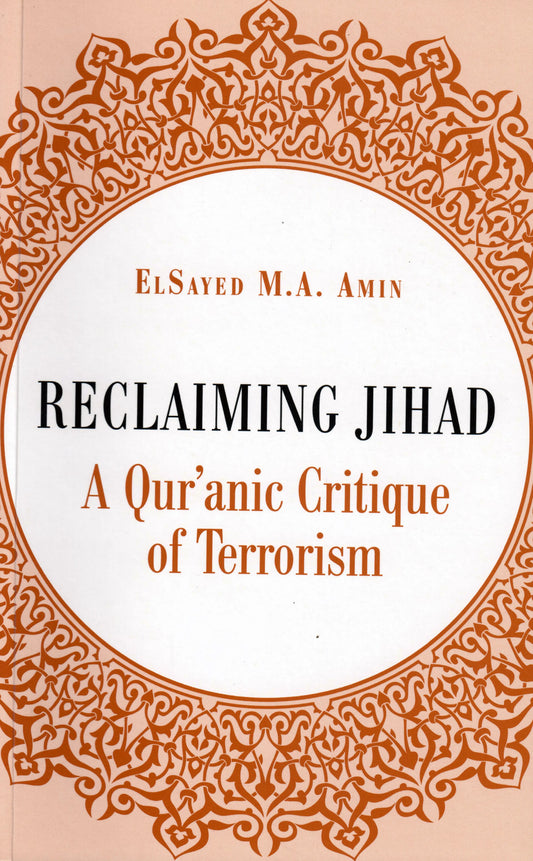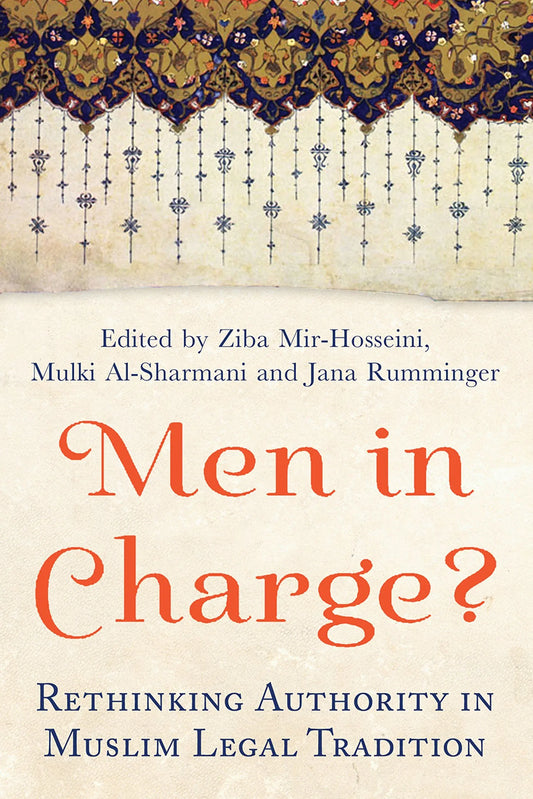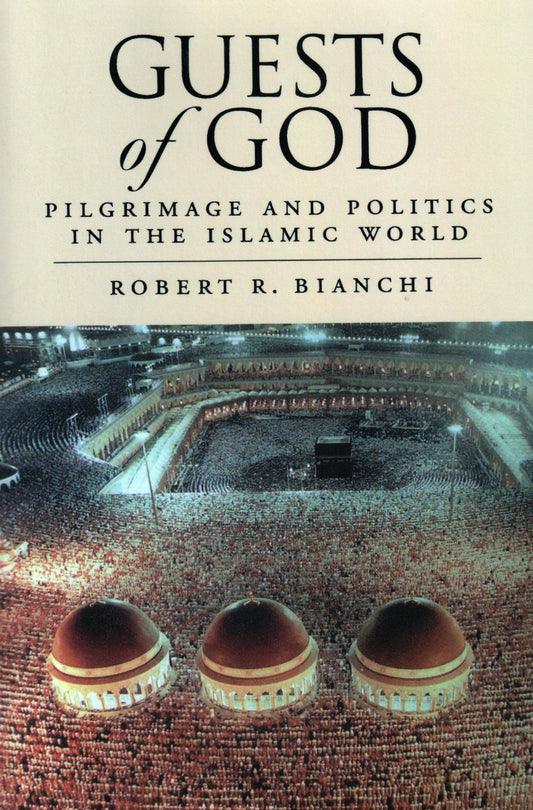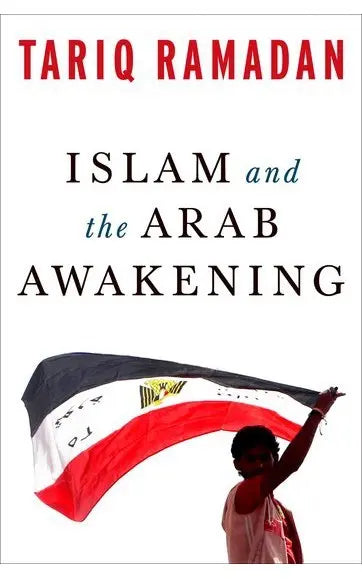Collection: Political & Social Issues
-
The Islamic Discourse in Religious Institutions: It's Current State & Future Development
Habib Umar bin Hafiz
Regular price $7.00 USDRegular priceUnit price / per5.0 / 5.0
(4) 4 total reviews
-
Man & the Universe: An Islamic Perspective
Mostafa al-Badawi
Regular price $17.95 USDRegular priceUnit price / per -
Blackness and Islam
Dawud Walid
Regular price $19.99 USDRegular priceUnit price / per -
British Muslim Identity
Abdal Hakim Murad
Regular price $5.00 USDRegular priceUnit price / per -
War and Peace in Islam: The Uses and Abuses of Jihad
Regular price $39.95 USDRegular priceUnit price / per5.0 / 5.0
(4) 4 total reviews
-
Illuminating the Darkness: Blacks and North Africans in Islam
Habeeb Akande
Regular price $12.00 USDRegular priceUnit price / per5.0 / 5.0
(2) 2 total reviews
-
Islam and the Race Question : Paul Hardy PhD
Paul Hardy
Regular price $5.00 USDRegular priceUnit price / per -
Ibn Taymiyya: Muslims Under Non-Muslim Rule
Ibn Taymiyya
Regular price $16.95 USDRegular priceUnit price / per -
Empire and the Crescent: The Global Implications for a New American Century
Hamza Yusuf, William Blum, Zaid Shakir, Edward Sherman, Barbara Metcalf, Abdal Hakim Murad and other eminent scholars and experts
Regular price $18.95 USDRegular priceUnit price / per -
Democratic Tyranny and the Islamic Paradigm
Aisha Bewley
Regular price $11.95 USDRegular priceUnit price / per -
Qawwamoon: Protectors and Maintainers
Rahmanara Chowdhury
Regular price $9.95 USDRegular priceUnit price / per -
Mapping the Secular Mind: Modernity's Quest for A Godless Utopia
Haggag Ali
Regular price $14.95 USDRegular priceUnit price / per -
Issues in Contemporary Islamic Thought
Taha Jabir al-Alwani
Regular price $16.95 USDRegular priceUnit price / per -
Where I'm Coming From: The Year in Review (Volume 1)
Zaid Shakir
Regular price $10.00 USDRegular priceUnit price / per -
Sold out
Injustice and the Unjust
Muhammad Metwalli al-Sharawi
Regular price $14.99 USDRegular priceUnit price / per -
Hands Off Our Hijab
Farhat Amin
Regular price $11.99 USDRegular priceUnit price / per -
The Spirits of Black Folk: Sages Through the Ages
Jalal al-Din al-Suyuti
Regular price $25.00 USDRegular priceUnit price / per -
Citizenship and Accountability of Government: An Islamic Perspective
Mohammad Hashim Kamali
Regular price $34.95 USDRegular priceUnit price / per -
Reclaiming Jihad: A Qur’anic Critique of Terrorism
ElSayed Amin
Regular price $29.95 USDRegular priceUnit price / per -
Men in Charge?: Rethinking Authority in Muslim Legal Tradition
Many Contributors
Regular price $39.00 USDRegular priceUnit price / per -
Erasing the Human: Collapse of the Post Colonial World and the Refugee Immigration Crisis
Hatem Bazian
Regular price $17.99 USDRegular priceUnit price / per -
The Muslim Prince
Abdalqadir as-Sufi
Regular price $17.95 USDRegular priceUnit price / per -
Guests of God - Pilgrimage and Politics in the Islamic World
Robert Bianchi
Regular price $38.95 USDRegular priceUnit price / per -
Sold out
Islam and the Arab Awakening
Tariq Ramadan
Regular price $27.95 USDRegular priceUnit price / per
Showing products 1 - 24 of 37

